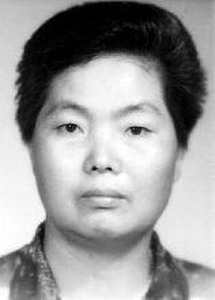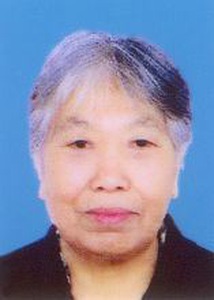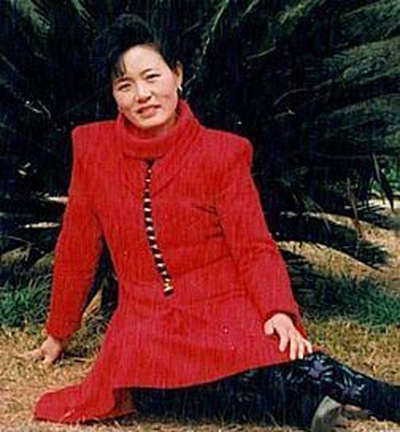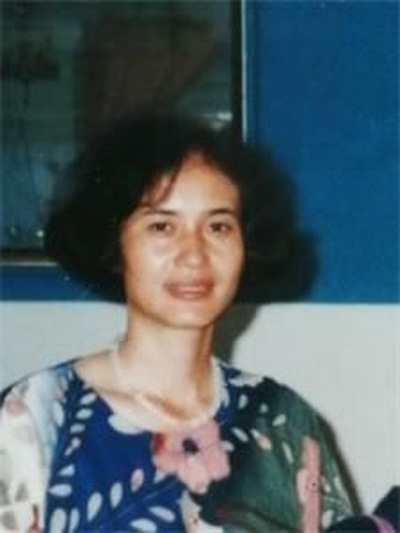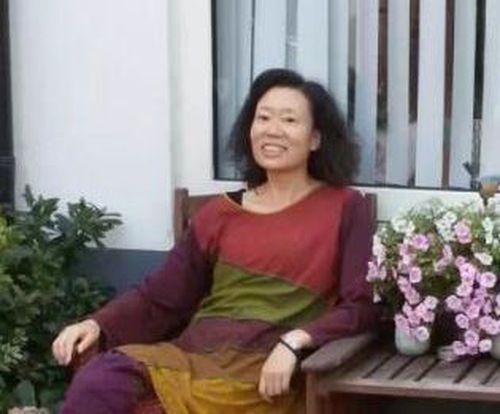Deaths and Torture of Falun Gong Practitioners in Yunnan Second Women’s Prison
(Minghui.org) The Second Women’s Prison in Yunnan Province was established on December 28, 1999. Originally designed to keep felons with life sentences, foreigners, prisoners with AIDS, and criminals on death row, the prison later became the only prison in the province that incarcerates female Falun Gong practitioners who refuse to renounce their faith.
Falun Gong, also known as Falun Dafa, is a mind-body practice that has been persecuted in China since July 1999.
According to an ongoing survey by Minghui.org, the prison has held a total of over 300 female practitioners over the past two decades. Over 250 were reported to have been tortured. Ten died as a result, four of them in prison. The other six sustained severe physical and psychological trauma, which persisted after they were released. Faced with financial persecution, harassment by police and officials, and criticism by family members, six practitioners died after their health declined.
Most of the torture in the prison was carried out at the behest of the Yunnan Province 610 Office, an extralegal agency created specifically to persecute Falun Gong. The prison adopted cruel measures to destroy the practitioners physically and mentally in an attempt to break their willpower and make them renounce their faith. To recognize the prison for its active role in the persecution, the Chinese Communist Party designated it as a “Civilized Unit” in Kunming City and Yunnan Province four times between 2012 and 2018.
Below is a summary of how the guards tortured the practitioners to try to force them to give up their faith and partial details of the ten practitioners who died as a result of being incarcerated and subsequently harassed.
Solitary Confinement
According to China’s Prison Law article 58, prisoners shall be placed in solitary confinement when they disrupt prison order, beat or insult guards or other prisoners, steal, gamble, or fight. It also stipulates that solitary confinement should be between 7 to 15 days each time.
Falun Gong practitioners were put in solitary confinement solely because they refused to renounce their faith, usually for four months at a time. Some were confined for years each time; some spent almost their entire prison term in solitary confinement.
The guards refused to allow the practitioners to wash, brush their teeth, shower, or do their laundry. The practitioners sat on their beds 16 hours a day and were forced to listen to loud audios slandering Falun Gong. The practitioners usually developed skin ulcers, loss of hearing, hypertension, swelling, and cardiovascular or respiratory problems.
Strict Management
The authorities put the prisoners into different styles of management: general management, relaxed management, or strict management. Strict management was designed for prisoners who were mentally unstable, with tendencies for extreme violence, prone to commit suicide or attempt to escape. The prison frequently used strict management on practitioners as an excuse to torture them.
1. Sitting still for 16 hours on a small stool every day
Steadfast practitioners were often forced to sit still for 16 hours a day with their knees touching and hands on their knees. The small stools are about 8 in (20.3 cm) in height and 3 in (7.6 cm) in width. The extra small ones are 4 in (10.1 cm) in height and 2 in (5 cm) in width and 5 in (12.7 cm) in length.
This torture causes the victim's buttocks to blister and then break open and fester and results in hypertension, severe swelling of the legs and feet, and sometimes leads to permanent injuries. Ordinary people wouldn’t be able to sit still on a sofa for 16 hours a day, and it is especially hard for elderly practitioners.
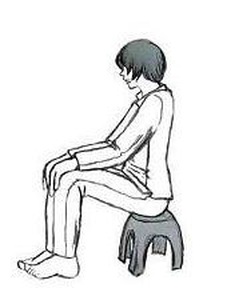 Torture reenactment: Sitting on a small stool
Torture reenactment: Sitting on a small stool
Other prisoners instigated by the guards would assault or beat the practitioners if they crossed their fingers, stretched their limbs, moved their torsos, closed their eyes or yawned during the sitting torture.
2. Prisoners monitor and harass practitioners
The guards arranged two or more prisoners to take turns watching, harassing, and beating the practitioners around the clock. This is to ensure the practitioners do not talk to each other or do the Falun Gong exercises. These prisoners are rewarded with reduced sentencing if they follow the guards’ orders.
3. Basic rights denied
Under strict management the practitioners could not speak to anyone, watch television, write letters home, or have family visits. They could only use the toilet three times and have one bottle of water each day.
The prison set up a strict management ward in July 2019 specifically for the practitioners under strict management. Once a practitioner entered this ward, she would be confined to a cell with a thin mat and bed cover on the floor, a small stool, and a drinking cup. The practitioner had to sit in the cell and be subjected to brainwashing all day except for going to the toilet. When she slept on the floor at night, other prisoners could come in at any time to wake her up. In the winter, she couldn’t close the windows or ask for warmer bedding. She was denied sanitary napkins when needed.
Brainwashing
The brainwashing tactics used in the prison include:
1. Injecting or feeding practitioners with nerve-damaging drugs2. Forcing practitioners to listen to loud audios and read materials slandering Falun Gong3. Forcing the practitioners to write and sign guarantee statements and renounce their faith4. Organizing criticizing sessions to humiliate and criticize the practitioners5. Using various torturers, solitary confinement, and strict management to destroy the practitioners’ willpower
Forms of Torture
Forms of torture used in the prison to break the practitioners include:
1. Sitting still on small stools, standing or squatting for prolonged periods of time, training under the sun, and being stripped of clothes in the winter2. The guards either beat the practitioners or instigate other prisoners to. They pinch the practitioners, choke them, push them around, pull their hair, cover their mouth with mops, slap them with hands or shoes, and stab their hands and feet with sharp objects.3. Guards or other prisoners hold the practitioners down and force-feed them drugs or food. Sometimes they even insert tubing into a practitioner’s stomach and leave it in, which is life-threatening.4. Wearing handcuffs or shackles all the time. Sometimes the practitioners were handcuffed behind their backs or to the ground, bed frames, or window frames.5. Shocking with electric batons6. Drugs that damage the central nervous system were put in the practitioners’ food. Sometimes prison doctors would inject the practitioners with the drugs.7. Intensive labor for long hours
Deaths of Ten Practitioners
All of the practitioners who passed away at some point were in solitary confinement and strict management and subjected to the small stool torture, injection of unknown drugs, and constant brainwashing. Ms. Shi Xizhi and Ms. Yang Cuifen died while they were still in prison; the rest died after they were released.
After suffering relentless torture, many of them developed cardiovascular problems such as hypertension and were traumatized psychologically. Their symptoms were so severe that the prison authorities released them on medical parole so that they wouldn’t die in prison. Nonetheless, the persecution didn’t stop there.
Agents from the 610 Office, local police officers, prosecutors, and officials constantly harassed them and their families. Many of the practitioners either lost their jobs, lost their pensions, or became ineligible for low-income subsidy, which all led to financial difficulties. Their families couldn’t understand their faith and blamed them for what happened. Added to their physical injuries and mental trauma, their health deteriorated and they passed away.
1. Ms. Shi Xizhi from Kunming City shocked with electric batons
Ms. Shi Xizhi lived in the 402 Second Building in the Yinfu Neighborhood, Kunming City, Yunnan Province. Because she was determined to practice Falun Gong, she was arrested from her home between April and May 2002. She was secretly tried and sentenced to four years in the Second Prison of Yunnan Province.
Ms. Shi was placed under strict management and in solitary confinement. The guards made her sit on a small stool all day and injected her with nerve-damaging drugs.
Late at night on March 8, 2005, the prison called her daughter, saying that her mother was gravely ill. Ms. Shi died from drug overdoses. She had high blood pressure, so the guards purposely gave her drugs that were harmful to her blood pressure, which resulted in her death. According to a prisoner, a guard shocked Ms. Shi with an electric baton, which triggered her death. Ms. Shi, in her 60s, passed away early on the morning of March 17, 2005.
2. Ms. Wang Lianzhi from Kunming City died after being fed unknown drugs
Ms. Wang Lianzhi was a retired worker who lived in Kunming City. She was put in the 2nd Women's Prison on August 7, 2008. She had to sit still on her bed or a small stool from 6 a.m. to 10 p.m. every day. Had she moved or closed her eyes, the prisoners would insult or beat her. She wasn’t allowed to wash, brush her teeth, shower, or change clothes.
Three months later on November 10, her son finally got to see her in prison. She was thin and seemed tired but still mentally sound.
On November 27, 2008, the warden called Ms. Wang's son and told him to come to the prison. The head of the guards told him that his mother was diagnosed with schizophrenia, a mental illness. Ms. Wang's son was shocked because 17 days earlier his mother was fine mentally. He asked who had made the diagnosis, and they told him it was the city psychiatric hospital. The head guard also said that Ms. Wang refused to take drugs for her hypertension and so they put the drug in her food. When the son asked what other drugs they put in her food, the guard said nothing.
Ms. Wang was released on medical parole on January 7, 2009, almost in a vegetative state by then. All of her teeth were loose or falling out, she had terrible headaches, and she could not sleep. She was rushed to the Kunming City First People's Hospital on November 16, 2009, and she never regained consciousness. Her family took her home on November 25, 2009, since there was no hope of recovery, and she died on November 27, 2009. She was 73.
3. Dr. Shen Yueping from Yuxi City dies after three years of solitary confinement and being fed unknown drugs
Dr. Shen Yueping used to work as an attending physician at the Maternal and Children's Health Hospital in Yuxi City. On December 28, 2004, Hongta Police Department officers arrested her and her husband Pu Zhiming. The Hongta District Court sentenced Dr. Shen to a four-year term that was later illegally extended for an additional year. Her husband was sentenced to four years.
Dr. Shen was admitted to the Second Women's Prison, where the guards took turns trying to brainwash her. They insulted her and turned the speakers as loud as possible to play audios slandering Falun Gong. She had to sit on her bed 16 hours a day and wasn’t allowed to stand up or walk. They didn’t let her shower or do her laundry. She didn’t have sanitary napkins during her periods. Prisoners instigated by the guards often hit her or stabbed her with needles. They put unknown drugs in her food every day and forced her to eat it.
After eight months, Dr. Shen's lungs developed holes. She couldn’t stop coughing. The guards gave her only a bowl of rice noodles or a bowl of porridge once a day. She starved until the next day. Her family brought nourishing food and fruit to the prison for her, but she got none of it.
Her husband received a phone call from the prison on May 11, 2009, saying that the hospital had issued a “notice of critical condition” for her. He rushed to the Second Affiliated Hospital of Kunming Medical College. She was emaciated. She was on her last breath and could hardly keep her eyes open, let alone talk.
To avoid paying expensive hospital bills, the prison guards transferred Dr. Shen to the Center Hospital for the Bureau for Reform Through Labor, a hospital with very poor medical equipment and poor conditions. On May 15, the prison guards arranged for the hospital to release Dr. Shen on medical parole. Her husband took her to the Third People's Hospital in Kunming City at around 10:00 a.m. that day. She remained there until she died at 11:30 p.m. on July 16 at the age of 49.
4. Ms. Yang Cuifen dies of sudden illness
Ms. Yang Cuifen was born in 1949. She retired from the Bureau of Forestry in Qiubei County, Wenshan, Yunnan Province. She had lupus since she was young and lost all her hair. People avoided her because of how she looked. After she became a Falun Gong practitioner, the incurable disease disappeared. Her family witnessed the miracle of Falun Gong and believed that the practice saved her life.
After the persecution started, the Chinese communist regime sentenced her to prison twice for a total of nine years because she refused to give up her faith. In Yunnan Second Women’s Prison, she had to sit on a small stool for 16 hours every day. The authorities also made her do hard labor.
Ms. Yang was put in prison the second time for five years. Shortly before her scheduled release date, her family got a call from the prison authorities on October 2, 2013. They were told that Ms. Yang was in critical condition. When they got to the hospital, she had already passed away. She was 64.
Two days prior to her death, on September 30, Ms. Yang called her husband and they chatted. Her family had visited her in the past four years and didn’t notice anything wrong. Responding to the family’s accusations, the prison authorities claimed that she had pre-existing hypertension and it normally led to sudden death.
5. Ms. Li Jianying from Kunming city dies three years after her release
Ms. Li Jianying used to work at the Iron and Steel Company in Kunming City. The authorities arrested her on April 4, 2000, when she told the commissioners of Yunnan Province that the persecution was wrong. She was detained for 15 days.
The police arrested her in May 2002 because she hung up a banner that said “Falun Dafa Is Good” in front of a temple in Jinning County. She was imprisoned for three years and released in 2005. She remained ill and never recovered from the trauma she sustained in prison. She died three years later in 2008 in her 60s.
6. Dr. Wang Lan from Kunming incoherent after being fed unknown drugs
Dr. Wang Lan was a physician from Kunming City and a retired member of Kunming City Labor Union. After the persecution began, Xishan District Domestic Security officers often harassed and monitored her and tapped her phone. She was arrested and detained many times.
Dr. Wang traveled to Tibet with a friend on July 2, 2005. The police from Bomi County, Tibet, arrested her and put her in Yunnan 2nd Women’s Prison for four years, during which time she was put in solitary confinement three times and often forced to sit 16 hours a day on a small stool. The prison authorities many times put nerve-damaging drugs in her food, causing severe adverse reactions. Her reactions slowed down.
After her release, agents from the 610 Office, police officers, community officials, and her supervisors at work continued to harass her. She lost all her pensions and benefits. The physical trauma and the mental stress led to her death on January 1, 2012. She was 56 years old.
7. Ms. Huang Tao from Yuxi City died after release on medical parole
Ms. Huang Tao was abducted by Yuxi Domestic Security Division officers on January 9, 2005, leaving her 96-year-old mother on her own. She was sentenced after a sham trial to four years in the Second Women’s Prison. She developed severe diabetes and lost a significant amount of weight. She was granted medical parole in December 2006.
The authorities continued to harass Ms. Huang after her release and withheld her pension from January 2005 to January 2009. She became increasingly weak. Ms. Huang passed away on July 28, 2011.
8. Ms. Sun Huaifeng from Dayao County dies a year after medical parole
Ms. Sun Huaifeng was a teacher who retired from a school in Jinbi Town, Dayao County. She retired because she was too ill to continue working. As she later became a Falun Gong practitioner, she regained her health.
She was taken to Yunnan Women’s Forced Labor Camp in September 2004 for refusing to renounce her faith. Two years later, on February 9, 2006, the labor camp authorities had her family come take her home because she was near death.
The harassment from the authorities put tremendous pressure on her husband. He divorced her, not understanding why she wouldn’t give up her practice.
The local police arrested her again when she told others about the persecution. She was given four years and gravely tortured in the Second Women’s Prison. She became extremely weak and was released on medical parole in 2007. Her former employer refused to pay her pension. Her application for low-income subsidy was denied. She couldn’t take care of herself physically or financially. She died in February 2008 at the age of 56.
9. Ms. Yang Mingqing developed circulatory problems sitting on a small stool
Ms. Yang Mingqing was a chief official at the Forestry Training Center and was well respected. Because of the persecution, Ms. Yang was incarcerated for a total of nine years and two months for not renouncing her belief. During the World Expo in Kunming in 1999, the police put her and her husband under house arrest for 45 days. After that, she was detained twice, put in a labor camp once, and imprisoned twice.
While she was in the 9th ward in the Second Women’s Prison, she was put in solitary confinement for four months and forced to sit on a small stool every day. As a result, she developed hypertension, swollen legs, festering sores at the perineal region, and hearing loss. The physical trauma persisted after she was released. She died on March 8, 2019, at the age of 67.
10. Ms. Ou Xueyun from Dali City becomes seriously ill and dies at 37
Ms. Ou Xueyun was an accountant and financial executive at an aviation logistics company. The Dali City police arrested her on March 13, 2009, because someone reported her distributing Falun Gong fliers. At the Dali City Detention Center, the guards forced her to wash herself every day while they watched and gave her only a small bucket of water.
She was sentenced to three years in the Second Women’s Prison. While serving time, she was forced to sit on a small stool for 16 hours a day while being subjected to brainwashing. She had to do labor-intensive work. When her family visited her, she was severely underweight and pale.
After she was released, the authorities continued to harass and arrest her. She was under tremendous pressure from her family and her health deteriorated. She died at 37 in March 2016.
Related report:
“Strict Discipline” of Falun Gong Practitioners in Yunnan No. 2 Women's Prison
